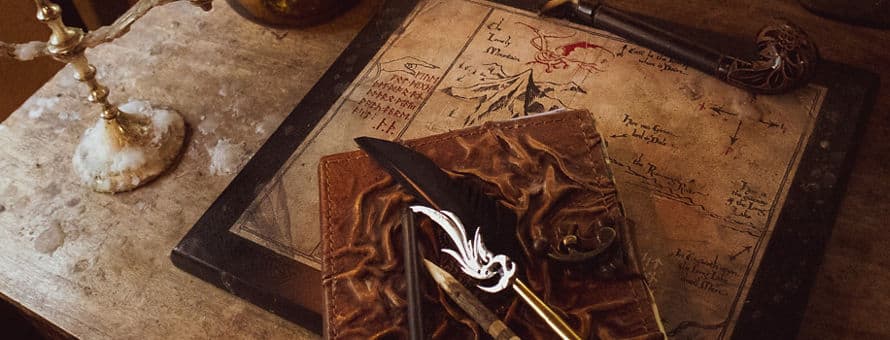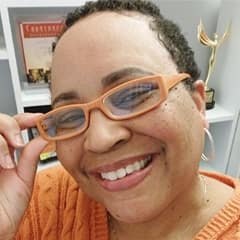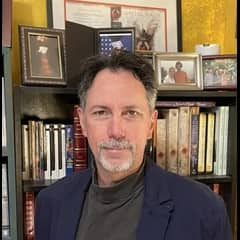Why Do People Like the Horror Genre?

From the macabre stories of Edgar Allen Poe to Jordan Peele's award-winning filmography, horror has a long history of evoking jump scares and nightmares from its audiences. Yet despite the genre’s enduring popularity, it's often misunderstood and dismissed by outsiders.
So what exactly is horror, and why do so many people flock toward a genre that’s often associated with violence and gore?
Horror Genre Definition

Horror can be defined by a work’s intent, according to Dr. Lisa Wood, an adjunct instructor and team lead at Southern New Hampshire University (SNHU) and vice president of the Horror Writers Association.
Wood is the recipient of several horror awards and the author of 15 works, including seven horror novels.
“If I were defining it, just put plainly, I would think about what is designed and specifically motivated to frighten,” she said of the horror genre. “If that's not the goal, then we have some discussion about where it falls.”
What Are the Subgenres of Horror?

Most horror works can be categorized as speculative or contemporary, according to Paul Witcover, associate dean of SNHU’s online MFA program, Horror Writers Association member and the author of several novels including “Dracula Asylum.”
He said speculative fiction is defined by the unreal — like supernatural elements — where contemporary fiction tends to be more based in reality and horrors that are within the realm of possibility.
According to Witcover and Wood, some popular horror subgenres within these broader categories include:
- Supernatural horror — Supernatural horror falls into the speculative branch of horror fiction and includes anything that wouldn’t occur in the real world, like monsters, werewolves, vampires and more. A famous example would be Bram Stoker’s “Dracula” (1897).
- Psychological horror — Psychological horror fits into the contemporary branch of horror and tends to be focused on a character's emotional or psychological state. An example is the 1962 novel “We Have Always Lived in the Castle” by Shirley Jackson.
- Slasher — The slasher genre typically falls under contemporary horror, and refers to horror films in which victims are killed violently with knives, according to Cambridge Dictionary. An example would be “Scream” (1996).
- Body horror — This subgenre generally falls into the speculative camp but more realistic depictions could fall under the contemporary horror side. Recently, the speculative body horror film "The Substance" (2024) has been making waves, for instance.
- Extreme horror — Extreme horror can be either supernatural or contemporary and is categorized by a high level of violence, gore and explicit content — like “Saw” (2004), for example.
Wood said there are more than 35 subgenres within horror, and new subgenres are being introduced all the time. Some stories might fall between categories or fit into multiple subgenres.
Explore the different types of literary genres.
So, Why Horror?
Fiction can be about absolutely anything, from romance and adventure to fantasy and science fiction. So, what’s with society’s interest in horror? First, it’s important to know that this interest isn’t new.
The History of Horror in Literature
Elements of horror can be found throughout mythology, folktales and literature leading up to the birth of the horror genre, according to Wood.
"'Hansel and Gretel' was the most terrifying thing I'd ever heard as a child," she said. "And I still wonder how we tell our children some of these."
Public Books referred to “Beowulf” as the oldest horror narrative in English literature, estimated to have been written between 650 and 800 C.E. But, in 1765, “The Castle of Otranto” by Horace Walpole is considered to have solidified horror as a distinct genre, according to Britannica.
After taking root, horror grew rapidly as the 1800s produced horror classics like Mary Shelley’s “Frankenstein” and Bram Stoker’s “Dracula.”
The genre remains mainstream today. For instance, Zac Cregger's "Weapons," a new horror film about the disappearance of all but one child in a young teacher's classroom, topped the box office for several weeks after its August 2025 release, AP noted.

Why Do Audiences Enjoy Horror?
Witcover said people enjoy horror for the same reason they enjoy amusement parks. "We love to be frightened," he said. "It affirms the fact that we exist."

Amy Midgett, a former journalist who is now writing fiction and horror while earning an MFA in Creative Writing from SNHU, shared a similar sentiment. Midgett's horror story, "See," came in third place for SNHU's 2024 Fall Fiction Contest, and she's been a fan of the horror genre since she was a child.
"I think people like horror for personal reasons, but a lot of what I hear is that they get a thrill from the adrenaline rush that comes with the fear — and the primal emotion it can evoke, regardless of how logical and reasonable we are as human beings," she said. "It doesn't matter when it's dark out."
In addition to serving this fear-seeking nature, Wood pointed out that horror provides escapism, like any other genre.
“There's something to be said for finding solace in someone else's situation. You can pull away and not be involved in that, and watch from outside,” she said. “You're not the one who's in danger.”
Witcover also noted that horror might even offer you motivation or inspiration during times of darkness. "Perhaps people turn to horror for two things above all: hope and the courage to endure," he said.
Find Your Program
Why Do Writers Choose Horror?
Although Witcover doesn't exclusively write horror, he said he enjoys how the genre allows him to manipulate the reader and deliver a strong emotional reaction.
“It's a great way to hit the reader where they live on the visceral level, but also to simultaneously kind of introduce a certain estrangement, alienation — these are all like really potent writerly moves that horror does particularly well, I think," he said.
Midgett especially appreciates how impactful the power of suggestion can be when it comes to writing horror. She said she favors a more subtle approach that can let a reader's imagination run wild.
"I particularly enjoy quiet horror," Midgett said. "I think our own imaginations, with a whisper of suggestion, can produce more horror than a writer or filmmaker laying everything out for us in graphic detail."
Finally, Wood noted that many writers choose horror as a way to reflect societal fears.
"Horror has always been this sort of political space," Wood said. "We are just dealing with the social topics and we present them in this consumable form."
If you're interested in writing horror, too, a degree could help you improve your skills and offer direction. For instance, with a bachelor's in creative writing from SNHU, you could choose to work on either a horror novel or a horror screenplay. If you've already finished your bachelor's, SNHU's Master of Fine Arts (MFA) in Creative Writing allows you to focus on one of four wider fiction genres, including speculative fiction.
Misconceptions About the Horror Genre
Wood said a lot of people associate horror with extreme horror, but that isn’t all the genre has to offer.
"Not everyone wants to see blood and guts or can tolerate that every day. Writing on the psychological horror end of it, I also don't want to see blood and guts all day," she said. "But there's a place for all of it."
Witcover agreed. He also noted that many people don't understand how diverse the horror genre truly is. “Horror gets a bad rap in the sense that it's very rarely taken seriously as an art form,” said Witcover.
He noted that the genre doesn’t always take itself seriously — and while this is part of its appeal to some, it could be a drawback to others. “But at the same time, there is a lot of serious, meaningful, beautifully written horror that means to do more than just deliver scares to the reader,” he said.
Discover more about SNHU's MFA in Creative Writing; find out what courses you'll take, skills you'll learn and how to request information about the program.
Mars Girolimon '21 '23G is a staff writer at Southern New Hampshire University where they earned their bachelor's and master's, both in English and creative writing. In addition to their work in higher education, Girolimon's short fiction is published in the North American Review, So It Goes by The Kurt Vonnegut Museum & Library, X-R-A-Y and more. Connect with them on LinkedIn.
Explore more content like this article

What Can You Do With an English Degree?

Academic Spotlight: Dr. Christopher Lee, Associate Dean of English Programs

SNHU Spotlight: Ashley Smith, BA in Communication Grad
About Southern New Hampshire University

SNHU is a nonprofit, accredited university with a mission to make high-quality education more accessible and affordable for everyone.
Founded in 1932, and online since 1995, we’ve helped countless students reach their goals with flexible, career-focused programs. Our 300-acre campus in Manchester, NH is home to over 3,000 students, and we serve over 135,000 students online. Visit our about SNHU page to learn more about our mission, accreditations, leadership team, national recognitions and awards.


